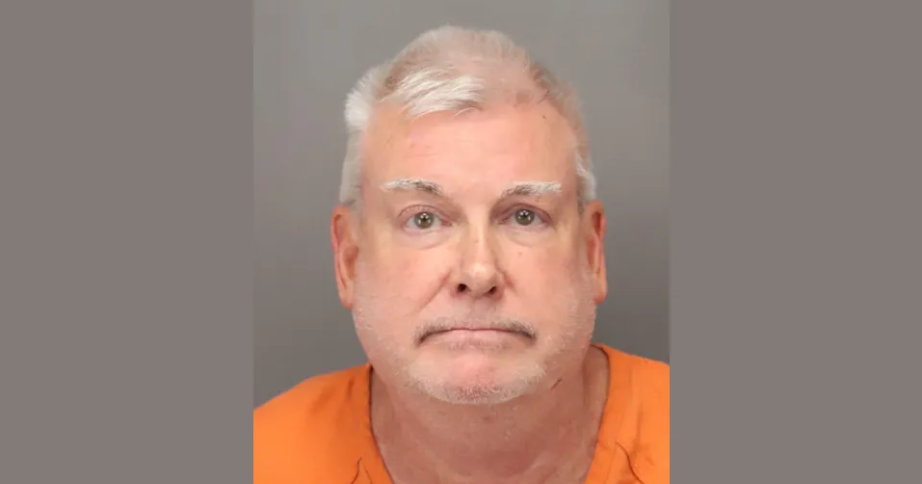Gov. Scott Joins In Call To Free Venezuelan Political Prisoner Leopoldo Lopez
Follow CBSMIAMI.COM: Facebook | Twitter
MIAMI(CBSMiami) – Florida Gov. Rick Scott is joining Venezuelans' calls to free political prisoner Leopoldo Lopez.
The governor hosted a Freedom Rally at El Arepazo 2 in Miami located at 3900 NW 79th Avenue on Monday starting at 6 p.m.
Gov. Scott joined other leaders pushing for Lopez to be released.
"He has been in prison for quite a while. We have seen the protests down there. People out of food, out of medicine. It is horrible what is happening in Venezuela," Gov. Scott said.
Lopez was jailed after being found guilty of inciting violence during protests in 2014, and sentenced to almost 14 years in prison. He has repeatedly said that his sentence was politically motivated.
Lopez has not reportedly been seen for a month by his family or attorneys. Last week, rumors were going around that Lopez had been taken to a military hospital Wednesday evening. Even Florida Sen. Marco Rubio tweeted out saying he had been taken to the hospital.
Those rumors were later quelled when Venezuelan state television aired what appeared to be a video of Lopez in jail, looking well, saying he was asked to shoot a "proof of life" video. In the video, he said it was May 3rd at 9 p.m. and goes on to say "I don't understand the reason as to why I have to give a proof of life right now. I send this message to my family, to my sons that I am fine."
Gov. Scott says he will "recognize Leopoldo Lopez for what he has tried to do."
But local Venezuelans hope his message resonates at the highest level.
"What we need is the government here in Florida to translate this to the federal government," said Jani Mundez.
As for the rally in Miami, it comes during a month of violent protests in Venezuela. Over the weekend, tens of thousands of women took to the streets of Caracas and other Venezuelan cities, speaking out against Venezuela's President Nicolas Maduro and calling for peace in the crisis-wracked nation.
The women's marches, which took place in most major cities around the South American oil producer, were the latest in five weeks of sustained protests against Maduro whom opponents decry as a dictator who has ruined the economy.
In Caracas, marchers sang the national anthem and shouted "We want elections!" They were halted at various points by lines of policewomen and National Guard troops with armored cars, but the protest remained peaceful.
Various female protesters marched topless with black face masks in mourning for the fatalities that have resulted from protest-related violence.
Opposition leader Henrique Capriles joined the women protesters, saying the demos would continue until the country saw signs of change from the Maduro administration.
The opposition, which has majority support in Venezuela after years of being in the shadow of the ruling Socialist Party, is demanding that delayed state elections be held and the 2018 presidential vote be brought forward.
They also want the government to free scores of jailed activists, allow humanitarian aid from abroad to offset a brutal economic crisis, and respect the independence of the legislature where the opposition won a majority in 2015.
As the opposition march developed, government supporters donned red and rallied in support of Maduro in another part of the capital.
Highlighting vandalism and violence by young masked protesters, Maduro says opponents are seeking a coup with U.S. support and harbour "terrorists" and "murderers" in their ranks.
In response to the crisis, the 54-year-old successor to Hugo Chavez is setting up a super body known as a "constituent assembly" with powers to rewrite the constitution, shake up public powers, and potentially replace the legislature.
Scott, likely running for U.S. Senate, has an eye on the Venezuelan population in South Florida, which is growing political muscle, especially, in the cities of Doral and Weston.
What do they want Scott to tell President Donald Trump?
"To sanction the government officials from Nicholas Maduros regime that are coming here to enjoy the dollars Venezuelan people are not allowed to have or don't have access to," said David Dubis.
Since the anti-Maduro protests began in early April, at least 37 people have died, with victims including supporters of both sides, bystanders and members of the security forces.



